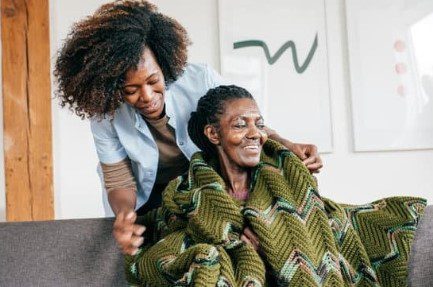Supporting Military and Veteran Caregivers: Strategies to Improve Mental Health and Reduce Caregiver Burden

Caring for a military veteran is an honorable responsibility, one that comes with profound emotional and physical demands. Military and veteran caregivers are often unsung heroes, providing unwavering support to those who have served. However, in the midst of caring for others, caregivers can sometimes overlook their own well-being. It’s important to ask—who supports them?
The emotional toll, stress, and responsibilities that come with caregiving can become overwhelming. Fortunately, there are effective strategies to reduce caregiver burden and improve mental health. Here are some essential tips for caregivers to help them maintain balance while providing the care that our veterans deserve:
Prioritize Self-Care
As a caregiver, it’s easy to focus solely on the needs of the veteran in your care, but taking care of yourself is just as important. Without regular self-care, burnout is inevitable.
How to: Schedule regular breaks throughout the day and engage in activities that bring you joy. Hobbies, mindfulness exercises, or even short moments of solitude can work wonders in restoring your mental and emotional balance. Practices like meditation, yoga, or simply reading a book can provide that much-needed mental recharge.
Remember: Caring for yourself isn’t selfish—it’s necessary to ensure that you can continue providing the best care.
Join a Support Network
Caregiving can feel isolating, but it doesn’t have to be. Joining a support group where you can connect with others who are facing similar challenges offers invaluable relief.
How to: Look for local or online support networks specifically for military and veteran caregivers. Sharing experiences and advice can provide both emotional support and practical tips. Being part of a community helps remind you that you are not alone in this journey.
Benefits: These networks often provide a sense of camaraderie, belonging, and validation, all of which are crucial for mental well-being.

Seek Professional Help
It’s normal to feel overwhelmed, and seeking professional assistance is a proactive way to manage your emotional and physical burdens.
How to: Counseling or therapy can be incredibly helpful in managing stress, anxiety, or depression that may arise from the demanding role of caregiving. Additionally, respite care services—whether through community programs or veteran assistance—can provide you with temporary relief from caregiving duties.
Don’t hesitate: Asking for help is a sign of strength, not weakness. Professional guidance can make a significant difference in your ability to cope.
Learn Stress-Management Techniques
Stress is an inevitable part of caregiving, but there are ways to manage it effectively. Developing tools and techniques to combat stress can improve both your mental health and your ability to care for others.
How to: Try simple practices like deep breathing exercises, meditation, or taking regular walks in nature. These activities can help regulate stress hormones, provide mental clarity, and calm your mind. Engaging in light physical exercise, even just for a few minutes each day, can help relieve anxiety and promote a sense of well-being.
Tip: The more consistent you are with stress-management techniques, the more effective they will be in the long run.
Stay Informed About Available Resources
Many programs, benefits, and services are specifically designed for military and veteran caregivers. Taking the time to learn about these resources can ease your burden.
How to: Research and reach out to organizations that offer caregiver support, whether it’s through financial assistance, respite care, or educational resources. By staying informed, you’ll be able to take advantage of the services available to you and your veteran.
Pro Tip: Local VA offices, military caregiver networks, and non-profit organizations often have extensive lists of resources that can make your caregiving journey easier.
Let’s Honor Our Caregivers
Military and veteran caregivers play a critical role in the lives of those who have served, offering unwavering dedication, love, and care. It’s time to acknowledge their contributions and ensure they are supported in return. By prioritizing self-care, joining support networks, and seeking professional help, caregivers can maintain their own mental and emotional well-being while continuing to provide excellent care.
Let’s continue to raise awareness about the needs of military caregivers, ensuring they receive the recognition, care, and support they so richly deserve.
